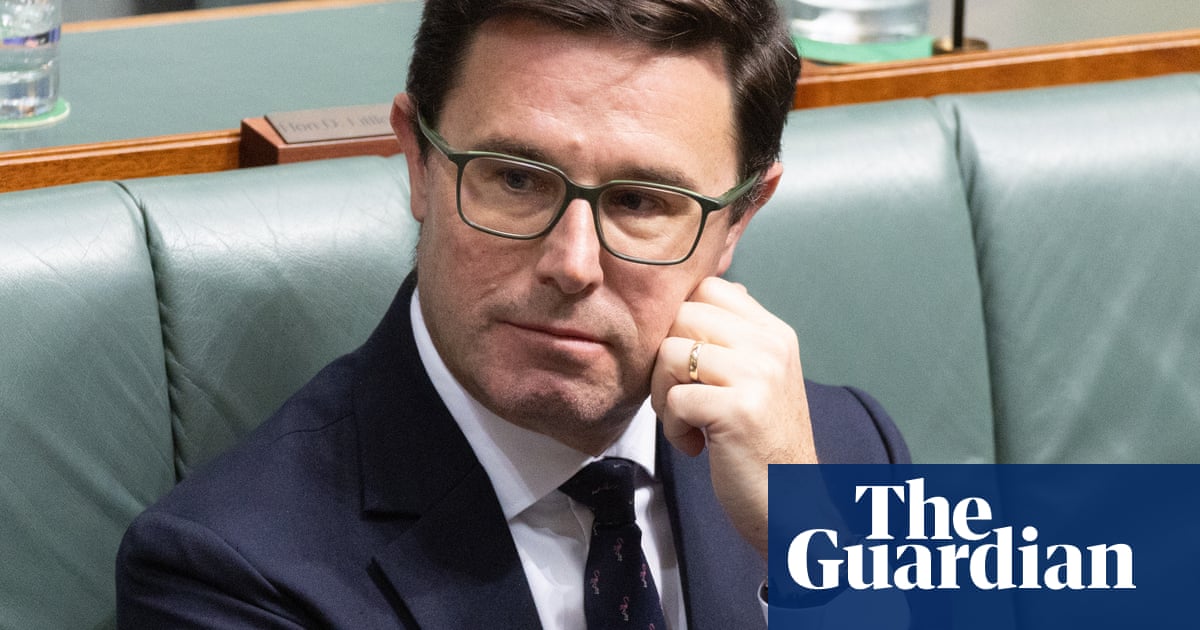David Littleproud has won the Nationals leadership, seeing off the challenge from the conservative Queensland senator Matt Canavan.
Kevin Hogan has been elected deputy leader and Bridget McKenzie will be leader in the Senate.
After the vote, Littleproud told journalists that he was “proud” of his achievements and ability to set the policy agenda.
Asked whether the Nationals would continue to support net zero, Littleproud was coy, and left the door open to dumping the policy. “We’re going to review all our policies, and we’ll do that in a methodical way,” he said.
“The reality is the leader of theNational partydoesn’t determine the policy direction of our party, the collective does.”
Sign up for Guardian Australia’s breaking news email
On the issue of the Nationals losing senator Jacinta Nampijinpa Price to the Liberal party room, Littleproud said he was “disappointed” at the defection.
“We are disappointed. But we’re going to be the adults in the room,” he said. “The reality is, Jacinta has greater ambitions than what the National party room can offer. We’ve been very supportive of her when no one else would.”
In reflecting on the Nationals’ successes, Littleproud said his party was the “first” to take a principal position on the voice referendum.
“We got to a policy position and made sure that we set the tone, set the tone for the conversation the Australian people had.”
Littleproud, 48, was widely expected by colleagues to beat Canavan and retain the leadership, a position he has held since May 2022.
Canavan announced his tilt for the leadership on Friday, and said he wanted to abolish the policy for net zero by 2050.
“Our plan should be based on how we can save the country, not save the party,” he said in a statement at the time. “I am standing for my party’s leadership so that I can tell my kids I did everything I could to fight for a better life for them.”
Emissions have long been a point of tension for the party, with several Nationals members, including Canavan and the former leader Barnaby Joyce, pushing back against climate targets and renewables in regional areas.
The Nationals MP Darren Chester, who has previously advocated for emissions reduction policy, told ABC Afternoon Briefing on Monday that net zero should be looked at, and backed the party sticking with its nuclear plan.
Sign up toBreaking News Australia
Get the most important news as it breaks
after newsletter promotion
“We will look at our election performance and look at the policies we think are worth continuing with and the ones that haven’t stood the test of the election … It is something that the National party room has to discuss,” he said.
“We should be doing the work we have intended to do, which is have a critical assessment of the seven sites and see what is possible with nuclear in Australia.”
The party advocated heavily for a nuclear policy, which the Coalition took to the election. Many in the Nationals have pushed to keep the policy while some Liberals havecalled for a rethink.
The Nationals held all their seats in the May election but lost a New South Wales Senate spot, at the cost of their former deputy leader Perin Davey.
Littleproud was elected party leader after the 2022 federal election.
The leadership of the Nationals has been a turbulent position in recent years. Before Littleproud, the role was held by Joyce, Michael McCormack and Joyce again throughseveral leadership spills.
The Liberal party is scheduled to hold its leadership ballot on Tuesday, with a contest between the deputy liberal leader, Sussan Ley, and the shadow treasurer, Angus Taylor.
Price has confirmed she would run fordeputy leaderon Taylor’s ticket.
